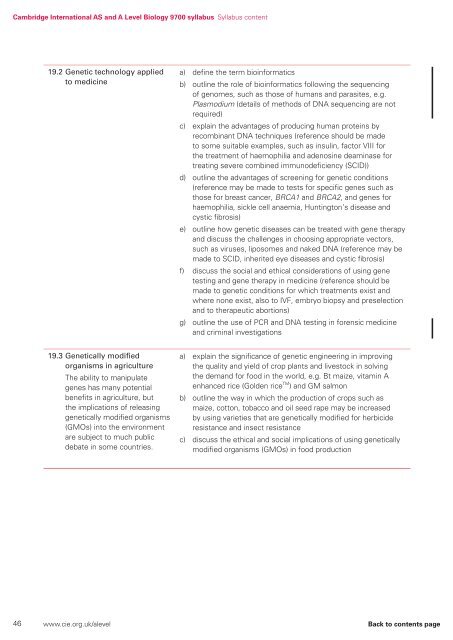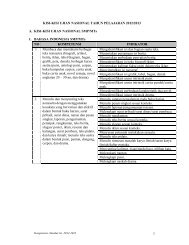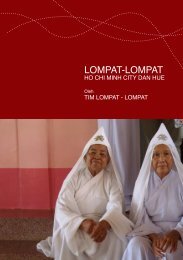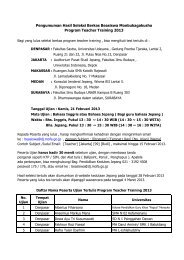9700_y16_sy
9700_y16_sy
9700_y16_sy
Create successful ePaper yourself
Turn your PDF publications into a flip-book with our unique Google optimized e-Paper software.
Cambridge International AS and A Level Biology <strong>9700</strong> <strong>sy</strong>llabus Syllabus content<br />
19.2 Genetic technology applied<br />
to medicine<br />
a) define the term bioinformatics<br />
b) outline the role of bioinformatics following the sequencing<br />
of genomes, such as those of humans and parasites, e.g.<br />
Plasmodium (details of methods of DNA sequencing are not<br />
required)<br />
c) explain the advantages of producing human proteins by<br />
recombinant DNA techniques (reference should be made<br />
to some suitable examples, such as insulin, factor VIII for<br />
the treatment of haemophilia and adenosine deaminase for<br />
treating severe combined immunodeficiency (SCID))<br />
d) outline the advantages of screening for genetic conditions<br />
(reference may be made to tests for specific genes such as<br />
those for breast cancer, BRCA1 and BRCA2, and genes for<br />
haemophilia, sickle cell anaemia, Huntington’s disease and<br />
cystic fibrosis)<br />
e) outline how genetic diseases can be treated with gene therapy<br />
and discuss the challenges in choosing appropriate vectors,<br />
such as viruses, liposomes and naked DNA (reference may be<br />
made to SCID, inherited eye diseases and cystic fibrosis)<br />
f) discuss the social and ethical considerations of using gene<br />
testing and gene therapy in medicine (reference should be<br />
made to genetic conditions for which treatments exist and<br />
where none exist, also to IVF, embryo biop<strong>sy</strong> and preselection<br />
and to therapeutic abortions)<br />
g) outline the use of PCR and DNA testing in forensic medicine<br />
and criminal investigations<br />
19.3 Genetically modified<br />
organisms in agriculture<br />
The ability to manipulate<br />
genes has many potential<br />
benefits in agriculture, but<br />
the implications of releasing<br />
genetically modified organisms<br />
(GMOs) into the environment<br />
are subject to much public<br />
debate in some countries.<br />
a) explain the significance of genetic engineering in improving<br />
the quality and yield of crop plants and livestock in solving<br />
the demand for food in the world, e.g. Bt maize, vitamin A<br />
enhanced rice (Golden rice TM ) and GM salmon<br />
b) outline the way in which the production of crops such as<br />
maize, cotton, tobacco and oil seed rape may be increased<br />
by using varieties that are genetically modified for herbicide<br />
resistance and insect resistance<br />
c) discuss the ethical and social implications of using genetically<br />
modified organisms (GMOs) in food production<br />
46 www.cie.org.uk/alevel Back to contents page





